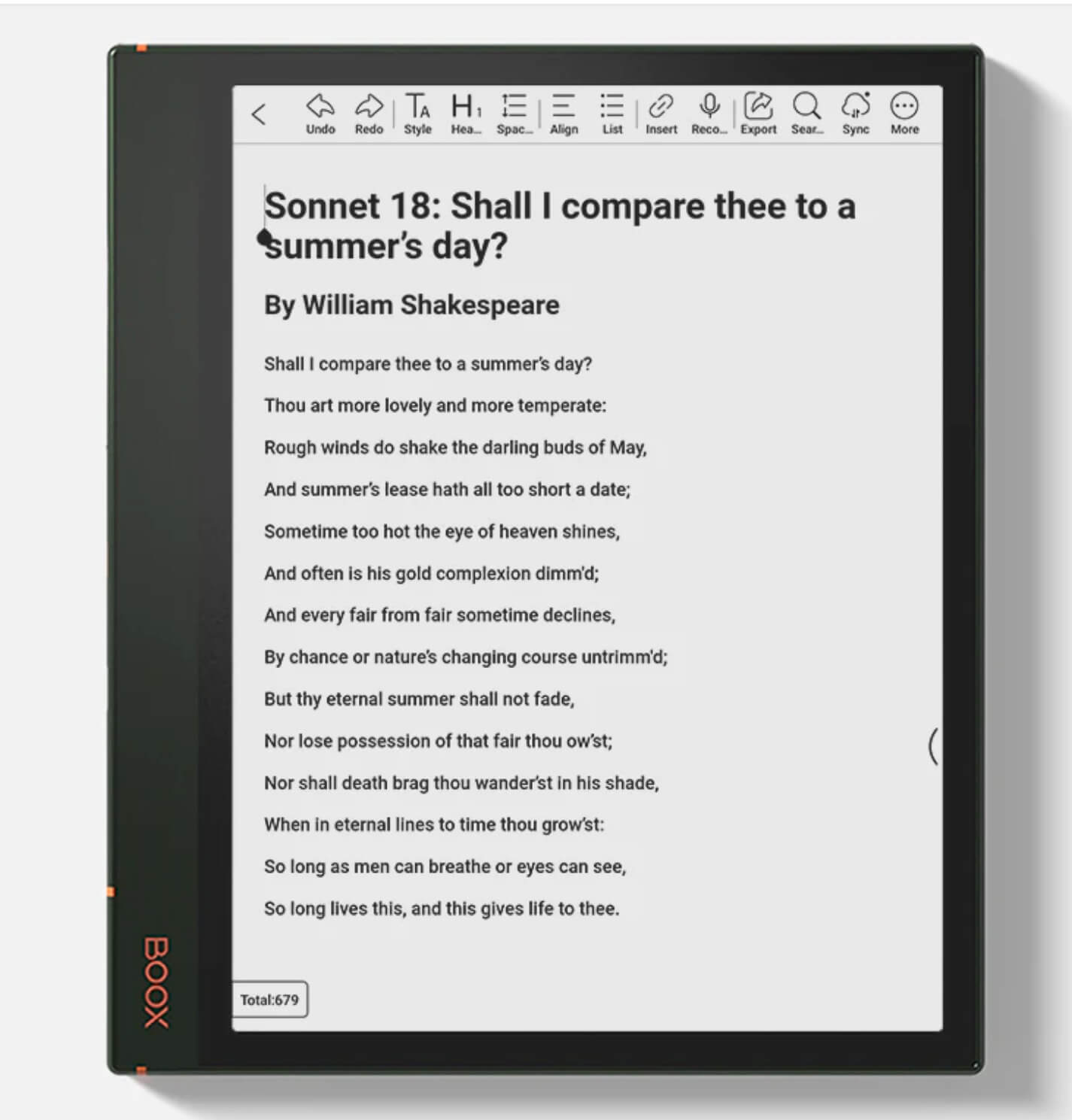Onyx Boox is a company based in China and they market a number of highly successful e-readers and e-notes all over the world, through various online distributors. When you load PDF files, sometimes they can be large and if you use their devices for the long haul, they can fill up all available space really fast. The company has a cloud storage service, which you get access to when you register and log in to your account. One of the advantages of this is if you ever upgrade to a newer model, all of your content can be accessed on the new device via the cloud. The cloud storage service used to max out at 5GB, but Onyx Boox has just increased it to 10 GB. The cloud service is free, and users do not have to pay for it.
The most common use of the Onyx Cloud is for note syncing. Once you log in to your Onyx account, your notes can be seamlessly synced to the cloud, and are accessible across all your BOOX devices. You can also view and share your notes on our send2boox websites and BOOX Assistant app, making it easy to access your notes from anywhere and show them during online meetings.
Quite recently, users can sync their reading data across all their BOOX devices. This includes syncing reading progress, annotations, handwritten notes, and many more. Additionally, the annotated contents can also be viewed and shared on our send2boox websites and BOOX Assistant app.
In addition, to note and reading data syncing, the Onyx cloud storage can also be used to store files, webpages, and screensavers via one-way transfer. It will come in handy especially when you want to save an ebook to read later on your BOOX device or bookmark a webpage for reading on an eye-friendly E Ink screen.
Onyx is also increasing the number of times that users can access the free OCR functions from 10 per day to 300 per day. With this upgrade, you need not worry about running out of storage space or OCR functions quickly.
Michael Kozlowski is the editor-in-chief at Good e-Reader and has written about audiobooks and e-readers for the past fifteen years. Newspapers and websites such as the CBC, CNET, Engadget, Huffington Post and the New York Times have picked up his articles. He Lives in Vancouver, British Columbia, Canada.

